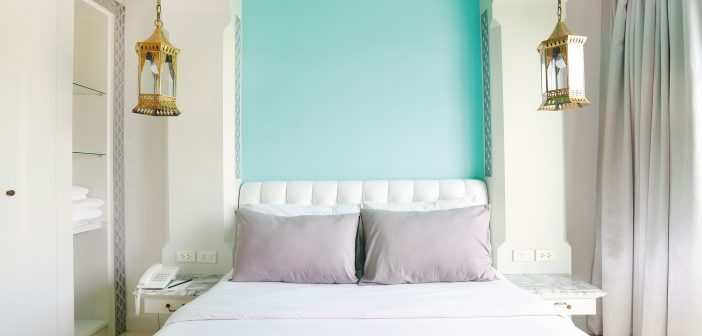Strategies for competing with gig-economy players like Airbnb
by Nick Fortuna
Just how big a bite of the apple is going to the gig economy – online disrupters like Airbnb, HotelAway, and Vrbo? The answer represents both good and bad news for hotel operators. It’s only a small bite right now, but the next one will be slightly bigger, as will the one after that.
Last year, researchers from Boston University studied 10 U.S. cities to gauge the economic impact of Airbnb on hotels, and they found that annual occupancy rates, revenue per available room, and average daily rates were all down by an average of 2 percent to 2.5 percent since Airbnb was launched in 2008. The school said in 2016, the most recent year with complete data, hotels in Boston alone lost out on $5.8 million in revenue to Airbnb.
“Airbnb has increased its supply tremendously over the years, and that is causing some concerns among the hotel operators who are also increasing their supply of hotel rooms,” said Dr. Diego Bufquin, assistant professor at the Rosen College of Hospitality Management at the University of Central Florida. “So, not only are you having more hotel rooms in the market, which is constraining a little bit the actual demand for hotel rooms, but you have Airbnb, which is growing its supply exponentially.”

HIMAWARI_DEW/SHUTTERSTOCK.COM
A “SOFT” APPROACH
In response, some hotel companies are launching soft brands that offer an experience similar to Airbnb, Bufquin said. AccorHotels acquired the luxury home-rental platform Onefinestay, for example, and Marriott International partnered with Hostmaker last year for a pilot home-rental program in London that is being expanded to other cities. The moves are meant to counter Airbnb Plus, which launched last year and offers premium rental properties.
“If they can’t beat them, they’re joining them,” said Howard Adler, director of the Center for the Study of Lodging Operations at Purdue University.
For existing hotels, the key to competing with Airbnb is to offer a better guest experience, according to Dr. Michael Cheng, interim dean at the Chaplin School of Hospitality & Tourism Management at Florida International University.
UP THE GUEST EXPERIENCE
Cheng said leisure travelers crave authenticity, so some are choosing Airbnb rentals in order to stay in a local neighborhood and not in a bustling commercial area. But hotels have a major advantage in that they have friendly employees who serve as a resource for guests, providing information about the local area, directions, restaurant recommendations, wake-up calls, message services, extra towels or toiletries, and a smooth check-in. Hotels also offer amenities such as bars, restaurants, free breakfast, gyms, pools, and spas that most Airbnb properties simply can’t compete with.

SONG_ABOUT_SUMMER/SHUTTERSTOCK.COM
Cheng said some Airbnb hosts, who tend to be entrepreneurial by nature, are trying to match the hotel experience by making breakfast for guests and setting up guided tours, restaurant reservations, and tickets to events, but well-run hotels still offer a level of service that most Airbnb hosts can’t replicate.
“A hotel cannot just be a place to sleep and shower,” Cheng said. “You have to provide all those other amenities. And hotels still provide the No. 1 thing that I think Airbnbs find very hard to compete against, which is the people aspect of our business.”
Bufquin concurred, saying: “It’s all about offering a consistent service – clean rooms that are renovated every five to eight years to keep them updated and fresh, incredibly fast WiFi, diverse breakfast offerings that include healthy options, and a pool and a gym that are well equipped and maintained. All those things matter.”
Here are seven additional strategies for hoteliers looking to maintain their edge over gig-economy sites:
- To the extent possible, compete on price. Many Airbnb homes undercut the prices of economy hotels, and with the historically low unemployment rate, hotels are being forced to pay workers more, making it challenging to reduce rates to Airbnb levels, Bufquin said. But if an economy hotel can keep its rates close to those of Airbnb, then most customers will stick with a brand they know instead of rolling the dice with an Airbnb host.
“Labor costs and construction costs are rising, so it’s becoming harder for hoteliers in the economy segment to offer an amazing product and services at an amazing price,” Bufquin said. “It’s pretty hard to do, but that’s what they need to do if they want to compete with Airbnb.”
- Reimagine your common spaces. Cheng pointed to the Ace Hotel and the Moxy hotels in New York City as examples of effective lobby transformations. Instead of waiting areas, the lobbies function like WeWork offices, giving guests a good place to work and have meetings. With free Wi-Fi, a bar, and food offerings, the spaces are used by local professionals and hotel guests alike, boosting revenue.
- Focus on business, group, and luxury travelers. A hotel’s downtown location might not appeal to some leisure travelers, but business travelers and groups attending major events still want to be close to the action, Bufquin said. Airbnb hosts rarely can accommodate even small groups, their homes typically aren’t in prime locations, and they lack large conference rooms where groups can gather and socialize.
Similarly, guests staying in luxury hotels are choosing to pay high room rates because they want to be catered to, and Airbnb hotels cannot offer the level of service of an experienced concierge, said Todd Soloway, partner at Pryor Cashman LLP in New York, a law firm whose clients include major hospitality companies.
- Don’t eschew online travel agencies. Hoteliers sometimes limit their presence on OTAs due to the high commissions involved, but as Airbnb properties increasingly appear on these sites, hoteliers must continue to dominate this space. “You have to make yourself accessible through those distribution channels,” Soloway said.
- Promote your loyalty programs. Although some gig-economy sites have begun offering rewards programs, hotels with well-established loyalty programs still have an edge in gaining repeat business, Soloway said. “Loyalty programs are a big deal because if you build up your points, you get free room nights, and for the hotelier, once you get the customer in your system, the customer is more likely to use that system going forward.”
- Lobby for local regulations. Cheng pointed to Miami Beach, which has banned short-term rentals lasting less than six months and one day in an effort to control the home-rental market. “The first thing hoteliers should do is band together and get regulations in place,” he said. “That is what Miami Beach has done very well.”
- Have a multipronged approach. “Airbnb is going to have its share of the business no matter what – that I believe,” Soloway said. “The key is to compete on a number of fronts at the same time instead of doing one thing alone. You want to compete on price, the level of service and by providing your brand assurances – the comfort of knowing that a brand is standing behind this room, so you are guaranteed a certain level of quality that they cannot guarantee at Airbnb.”




